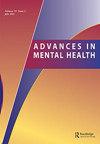Feasibility and acceptability of using telehealth for early intervention parent counselling
IF 1.4
Q3 PSYCHIATRY
引用次数: 28
Abstract
ABSTRACT Objective: With technology options for communication in healthcare becoming more widely available, families are increasingly able to access assistance regardless of location. Video conferencing (VC) is one means by which clients could access services remotely. A two-year pilot project was conducted with social workers, psychologists and parents to examine the feasibility and acceptability of the experience of VC for clinicians and clients undertaking parent counselling within child health services across Queensland. Method: The evaluation included pre and post questionnaires for parents and clinicians measuring their confidence, experience and satisfaction with using VC. Parents also completed the Parents Sense of Competence Questionnaire and a session feedback form after each appointment. Results: Clinicians showed increased confidence and skills in using technology. Most parents reported improved parenting satisfaction and improved feelings of self-efficacy. Despite half of the parents experiencing some technical issues, parents were satisfied with VC service delivery and their satisfaction with counselling via VC was comparable to the in-person appointments. Parents reported a preference for a hybrid approach combining VC and in-person counselling. Discussion: Parents and clinicians found the VC system easy to use and effective for counselling. Recommendations for the use of VC in parenting interventions are outlined, including the benefits of a flexible mixed service delivery model.使用远程保健进行早期干预父母咨询的可行性和可接受性
摘要目的:随着医疗保健通信技术的选择越来越广泛,家庭越来越能够获得援助,无论地点。视频会议(VC)是客户可以远程访问服务的一种方式。与社会工作者、心理学家和家长一起开展了一个为期两年的试点项目,以审查在昆士兰州各地的儿童保健服务中进行家长咨询的临床医生和客户的风险投资经验的可行性和可接受性。方法:采用问卷调查的方式,对家长和临床医生进行问卷调查,测量他们使用VC的信心、体验和满意度。家长们还在每次预约后完成了家长能力感问卷和一份会议反馈表。结果:临床医生在使用技术方面表现出更高的信心和技能。大多数父母报告说,他们的育儿满意度和自我效能感都有所提高。尽管有一半的家长遇到了一些技术问题,但家长对VC服务的提供感到满意,他们对VC咨询的满意度与面对面预约相当。据报道,家长们更倾向于将风险投资和面对面咨询相结合的混合方法。讨论:家长和临床医生发现VC系统易于使用和有效的咨询。概述了在养育干预中使用风险投资的建议,包括灵活的混合服务提供模式的好处。
本文章由计算机程序翻译,如有差异,请以英文原文为准。
求助全文
约1分钟内获得全文
求助全文

 求助内容:
求助内容: 应助结果提醒方式:
应助结果提醒方式:


